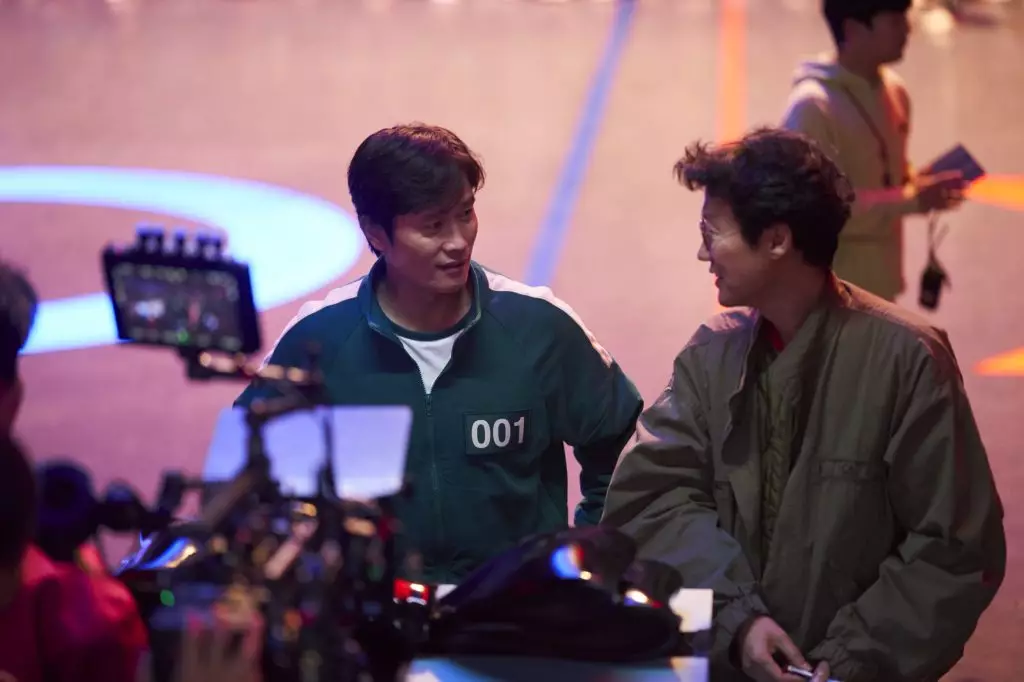The anticipation surrounding *Squid Game Season 2* has heightened the spotlight on Lee Byung-hun, whose character, formerly known simply as the Front Man/In-ho, has undergone a significant transformation. Initially introduced in season one as a mysterious figure cloaked in shadows, Lee’s role has expanded into a captivating narrative arc that not only deepens the intrigue of the series but also offers a penetrating glimpse into the complexities of his character. As he sheds the anonymity of his masked persona to evolve into Player 001, the stakes of the game escalate drastically. Lee’s articulated excitement about rejoining the series reflects the intertwining of personal and professional growth, an aspect that resonates with audiences who have followed his career through various cinematic landscapes.
Indeed, when Lee recounts the moment he learned of his inclusion in the second season, it’s a telling reflection on the evolving nature of narrative in contemporary television. Director Hwang Dong-hyuk’s initial uncertain vision for the season speaks to the organic development of storytelling in an era where creators often craft narratives in response to audience expectations and actors’ own interpretations. Lee’s surprise upon reading the finalized script indicates the innovative narrative choices that keep viewers engaged. It’s a testament to how creative flexibility can lead to more profound explorations of character and story progression.
Lee’s journey through the realms of cinema extends well beyond the confines of Korean dramas, as evidenced by his noteworthy Hollywood roles in action-packed franchises like *G.I. Joe*. Nevertheless, his experience at the premiere of *Squid Game Season 2* in Los Angeles marked a pivotal return to his cultural roots. After numerous years navigating the glitzy but sometimes superficial landscape of Hollywood, where connections are often transactional, Lee found an entirely different depth in sharing the red carpet with his Korean peers, celebrating a product of their collective talents and cultural heritage.
His reflections on this moment encapsulate a profound sense of pride and connection to the evolving global perspective on Korean cinema. In a world dominated by Hollywood narratives, the recognition of Korean storytelling, particularly through *Squid Game*, illuminates an essential cultural shift. Lee’s ability to appreciate this milestone while simultaneously contemplating the challenges he faced in his earlier years abroad reveals a layered appreciation for both his heritage and his career. It becomes clear that Lee is not just a participant in this resurgence of Korean content—he is a pivotal force behind its global acceptance.
As *Squid Game Season 2* ascends to remarkable viewership numbers, it cements its status as a cultural phenomenon. Its triumph in Netflix’s rankings exemplifies not only the universal appeal of the series but also the intricate storytelling that captivates audiences across linguistic barriers. Lee’s character, Player 001, stands at the heart of these developments, navigating moral ambiguities that challenge viewers to reconsider their perspectives on sacrifice and loyalty.
The intensity of Lee’s performance is amplified through pivotal scenes that evoke strong emotional responses. When he discusses his memorable moments in the series, particularly the team gathering for rebellion, it highlights the thematic exploration of unity against oppression—a central tenet of *Squid Game*. His character’s interaction with Gi-hun serves as a mirror reflecting the struggles and compromises individuals may confront in dire circumstances. The subtlety of Lee’s portrayal—a smile signaling Gi-hun’s faltering convictions—captures the essence of complex human emotions that infuse the series with realism and depth.
Through the multifaceted roles he embodies as Front Man, In-ho, and Player 001, Lee engages in a demanding dance of identity, consistently pushing the boundaries of his craft. Each character represents a different facet of the overarching narrative, requiring a sophisticated balancing act that Lee navigates with apparent ease. This continual challenge emphasizes the need for actors to be deeply attuned to both the emotional and ethical dimensions of their roles, especially in a series that confronts the audience with visceral questions about morality, survival, and human nature.
As *Squid Game* continues to influence the global television landscape, Lee Byung-hun remains a compelling figure of resilience and exploration. His contributions enrich the narrative tapestry of the series while echoing a broader theme—the power of storytelling to transcend cultural boundaries and spark essential dialogues around humanity’s darkest corners. The journey from a veteran actor in Korean cinema to an emblem of global entertainment is not merely a personal triumph; it is a reflection of the evolution of storytelling itself, inspiring countless creators and audiences alike.

